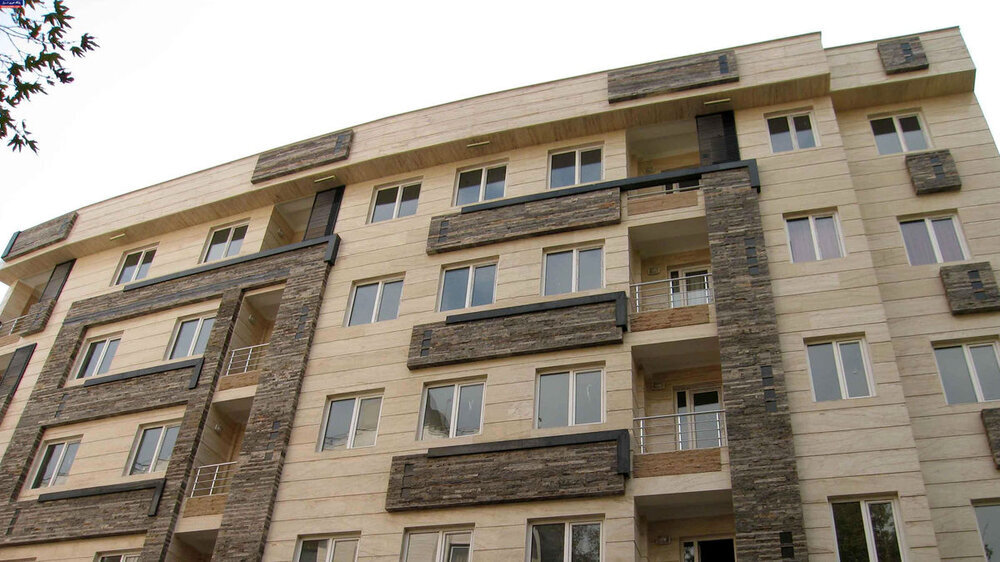
Regulations for tax on houses, luxury cars to be announced soon

Regarding the reason for the delay in approving the bylaws for the mentioned tax, Omid-Ali Parsa said: "The bylaws were sent to the government by the INTA a long time ago and have recently been approved by the government's economy committee."
The bylaws will be announced in coming days and then taxation of houses and luxury cars will be started, and heavy fines will be imposed on those who evade the tax, the official stated.
Back in last October, Transport and Urban Development Minister Mohammad Eslami had said that the ministry has referred a list of 194,000 vacant housing units to Iran National Tax Administration to be taxed under the new vacancy tax law.
The minister said that the owners of these houses have been informed in this regard via receiving SMSs.
In September 2020, Deputy Transport Minister for Housing and Construction Affairs Mahmoud Mahmoudzadeh had said that in the first stage of the implementation of the program for collecting tax from the country’s vacant housing units, only units belonging to natural persons are targeted.
The Iranian parliament (Majlis) had approved the double-urgency plan of the vacancy tax law in mid-July 2020.
The mentioned plan is mainly aimed at lowering the housing rental rate in the country.
Expressing his agreement over the approval of the mentioned plan, Hossein Hossein-Zadeh Bahraini, a member of the Majlis Economic Committee, said, “Our problem in the housing sector is not the demand higher than the supply, while the number of residential units is more than required.”
This plan is vital, as many families are struggling for renting the homes, while there are many empty units, the MP further reiterated.
The vacancy tax law, as part of Direct Tax Reform Law, was put on the agenda in the Iranian calendar year ending March 2016 and was enforceable from the year ending March 2017, but there was little data on the number of vacant units then, according to Mahmoud Alizadeh, a senior official with the INTA.
Alizadeh said, “As per Clause 54 of Direct Tax Law if a home remains vacant for more than a year, it will be subject to Vacancy Tax. Homes with a floor area of 150-odd square meters will be subject to tax at the rate of 20 percent of the property’s rent value,” Eghtesad Online published on June 20.
Elaborating on the vacancy tax, the INTA head had previously said, “Empty homes will not be taxed in the first year but they will be taxed at the rate of 50 percent of the property’s assessed rent in the second year and in the third year, they will be levied tax at the rate of 100 percent of the assessed rent”.
According to Mahmoudzadeh, a total of 6.6 million households or 30.7 percent of the country’s 18.1 million urban households live in rented homes.


Trump weighs using $2 billion in CHIPS Act funding for critical minerals

Codelco cuts 2025 copper forecast after El Teniente mine collapse

Electra converts debt, launches $30M raise to jumpstart stalled cobalt refinery

Barrick’s Reko Diq in line for $410M ADB backing

Abcourt readies Sleeping Giant mill to pour first gold since 2014

Nevada army depot to serve as base for first US strategic minerals stockpile

SQM boosts lithium supply plans as prices flick higher

Viridis unveils 200Mt initial reserve for Brazil rare earth project

Tailings could meet much of US critical mineral demand – study

Kyrgyzstan kicks off underground gold mining at Kumtor

Kyrgyzstan kicks off underground gold mining at Kumtor

KoBold Metals granted lithium exploration rights in Congo

Freeport Indonesia to wrap up Gresik plant repairs by early September

Energy Fuels soars on Vulcan Elements partnership

Northern Dynasty sticks to proposal in battle to lift Pebble mine veto

Giustra-backed mining firm teams up with informal miners in Colombia

Critical Metals signs agreement to supply rare earth to US government-funded facility

China extends rare earth controls to imported material

Galan Lithium proceeds with $13M financing for Argentina project

Kyrgyzstan kicks off underground gold mining at Kumtor

Freeport Indonesia to wrap up Gresik plant repairs by early September

Energy Fuels soars on Vulcan Elements partnership

Northern Dynasty sticks to proposal in battle to lift Pebble mine veto

Giustra-backed mining firm teams up with informal miners in Colombia

Critical Metals signs agreement to supply rare earth to US government-funded facility

China extends rare earth controls to imported material

Galan Lithium proceeds with $13M financing for Argentina project

Silver price touches $39 as market weighs rate cut outlook

















